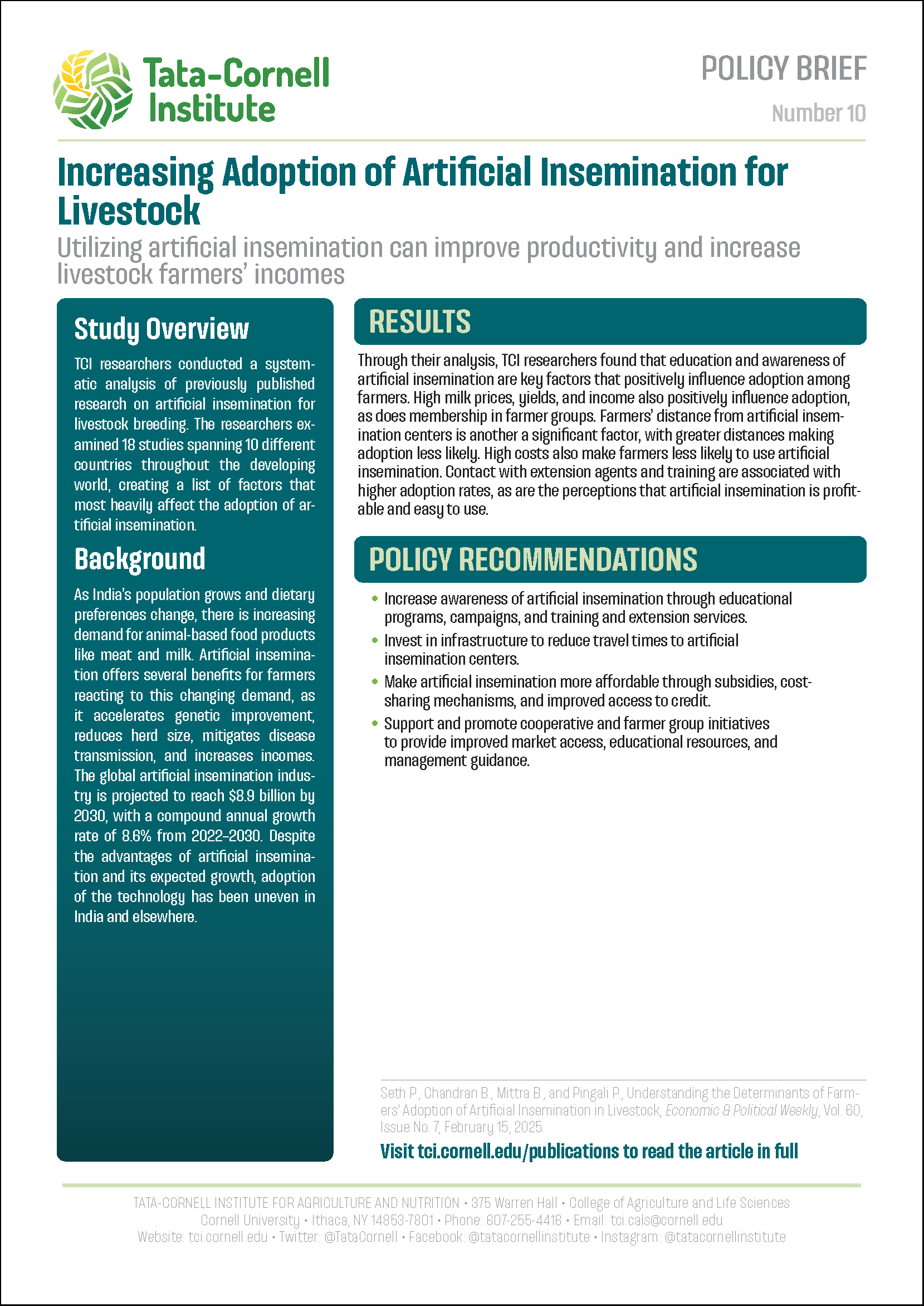Increasing Adoption of Artificial Insemination for Livestock
 This policy brief presents the results of a systematic review of existing research on the determinants of farmers’ use of artificial insemination for livestock breeding. TCI researchers examined 18 studies spanning 10 countries throughout the developing world, creating a list of factors that most heavily affect the adoption of artificial insemination. They found that education and awareness of artificial insemination are key factors that positively influence adoption among farmers. High milk prices, yields, and income also positively influence adoption, as does membership in farmer groups. Farmers’ distance from artificial insemination centers is another significant factor, with greater distances making adoption less likely. High costs also make farmers less likely to use artificial insemination. Contact with extension agents and training are associated with higher adoption rates, as are the perceptions that artificial insemination is profitable and easy to use.
This policy brief presents the results of a systematic review of existing research on the determinants of farmers’ use of artificial insemination for livestock breeding. TCI researchers examined 18 studies spanning 10 countries throughout the developing world, creating a list of factors that most heavily affect the adoption of artificial insemination. They found that education and awareness of artificial insemination are key factors that positively influence adoption among farmers. High milk prices, yields, and income also positively influence adoption, as does membership in farmer groups. Farmers’ distance from artificial insemination centers is another significant factor, with greater distances making adoption less likely. High costs also make farmers less likely to use artificial insemination. Contact with extension agents and training are associated with higher adoption rates, as are the perceptions that artificial insemination is profitable and easy to use.
Based on these results, TCI recommends that policymakers:
- Increase awareness of artificial insemination through educational programs, campaigns, and training and extension services.
- Invest in infrastructure to reduce travel times to artificial insemination centers.
- Make artificial insemination more affordable through subsidies, cost-sharing mechanisms, and improved access to credit.
- Support and promote cooperative and farmer group initiatives to provide improved market access, educational resources, and management guidance.

